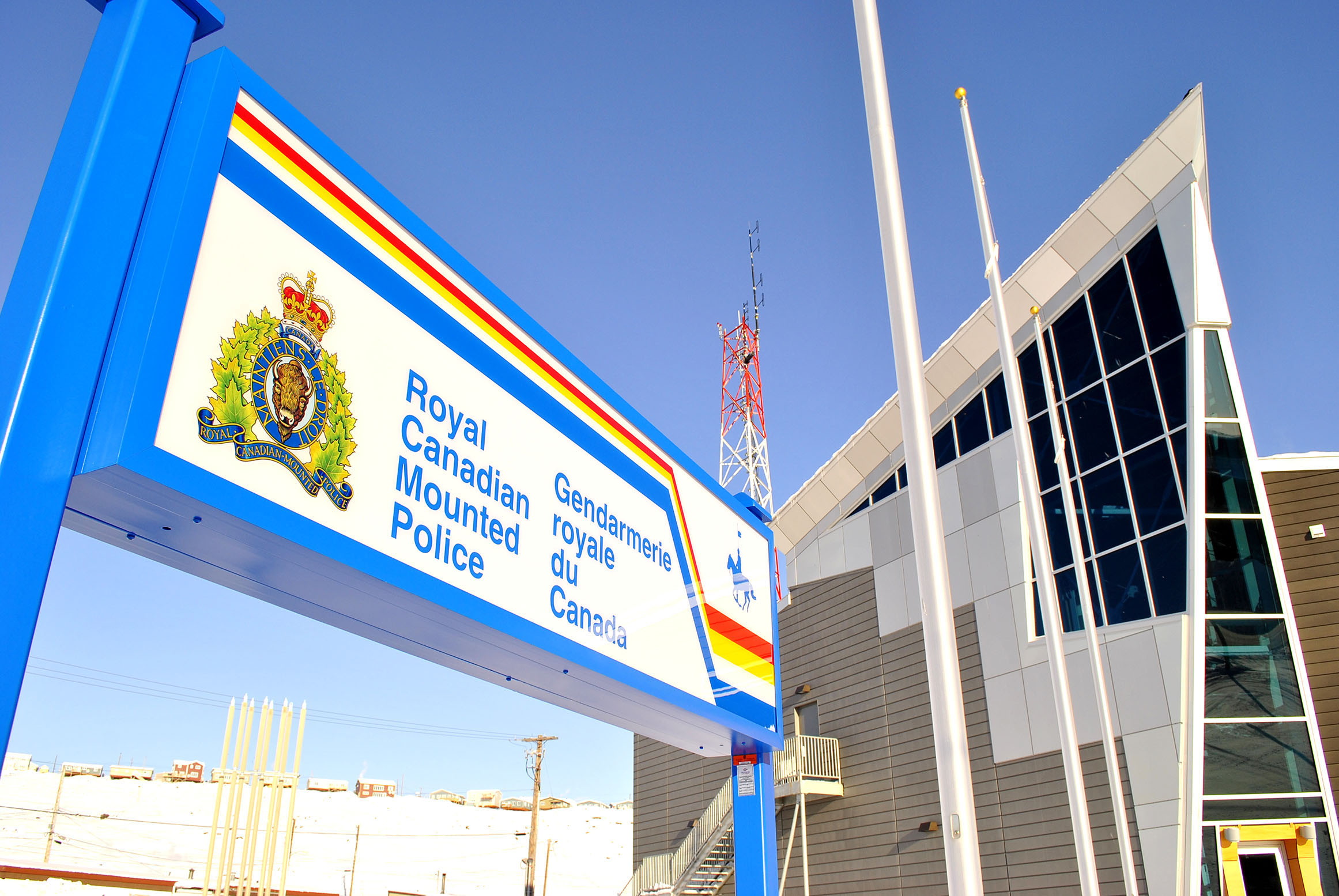New legislation could create independent police oversight in Nunavut
Bill 53 received its first reading in the legislative assembly last week
Bill 53 adds provisions to Nunavut’s current police act that would allow independent investigations of police-involved civilian injuries or deaths in the territory. (File photo)
Nunavut’s justice minister tabled legislation last week that could pave the way for a new police oversight model for the territory.
Bill 53, an Act to Amend the Royal Canadian Mounted Police Agreement Act, received its first reading in the legislative assembly on Thursday, Oct. 22.
The new bill adds provisions to allow independent investigations to look into police-involved civilian injuries or deaths in the territory and the terms to create such a body.
As it stands, the Nunavut RCMP has agreements with the Ottawa and Calgary police services to conduct third-party investigations of incidents involving the police that lead to serious injury or death.
In the fall 2018 sitting, Nunavut Justice Minister Jeannie Ehaloak told the legislative assembly that her department was open to looking at a civilian oversight body—rather than one led by the police—to review complaints of excessive force by police in the territory.
The call for that reform has only grown louder this year. In 2020, there have been six incidents in Nunavut where the Ottawa Police Service has been called in to investigate.
Three of those incidents were police-involved shootings, two of them fatal.
The bill, if passed, would allow the Government of Nunavut to enter into an agreement with an independent investigative body to look into incidents.
MLAs and other Nunavut organizations have called for changes to how serious police altercations are handled, stressing that one police force shouldn’t investigate another.
In Quebec, for example, the government created an independent police watchdog in 2015 called the Bureau des enquêtes independantes to look into police-involved injuries or deaths.
But Nunavut’s proposed legislation doesn’t exclude contracting a police force to do those investigations—the government would pick whichever body is most appropriate given the circumstances.
“A contracted investigative body and a contracted police force has the power to investigate serious incidents in Nunavut for the purpose of determining whether an offence under federal law has occurred,” the legislation reads.
“If, as a result of an investigation … a charging officer determines that there are reasonable grounds to believe that a police officer has committed an offence under the Criminal Code, the charging officer shall cause charges to be laid against the police officer.”
In the event that a police force is contracted to lead an investigation, the legislation also allows for the appointment of a civilian monitor to assist with investigation, to ensure its impartiality.
“The civilian monitor may inform the contracted police force of their concerns and may make any recommendations to the contracted police force that they consider appropriate to address the concerns,” the legislation reads.
The designated authority can also appoint a cultural advisor, the bill proposes, though the civilian monitor may be appointed as cultural advisor for the same investigation.
The Nunavut government would still need to draft regulations and criteria for the appointment of those monitors, their mandate and what would be required in the final report they submit to the justice minister.
The legislation doesn’t suggest whether and how those findings would be made public.
Bill 53 is expected to receive its second reading this week. If passed, the bill would be renamed simply as the Police Act.







Civilian oversight should be involved any time that there is a police involved shooting, or when there is serious injury to a suspect. I would further suggest that they should be involved any time there is serious injury to a member of the public which may have been caused by police action/inaction.
.
This does not negate another police force from investigating, as I believe that should also be done as they will have a wealth of experience and will also be able to provide the law enforcement point of view.
.
Let’s be honest, some RCMP officers, like their southern colleagues will bully or intimidate the public when they think that it will help them achieve their objective.
.
But we also need to be aware that policing is a difficult job, often thankless, and sometimes deadly dangerous. During dangerous encounters police officers must be able to protect themselves, and other members of the public.
.
It is a difficult line to walk, and most police officers are able to keep on the right side of it, most of the time. But no one is perfect.
.
We need to trust that police will do their job honestly and with a minimum amount of force when force is necessary. We also need to verify that this is the case.
Why allow for the *option* of civilian oversight, rather than simply mandating it? Very odd amount of wiggle room in the bill from the start. That defeats the purpose of the board if it is simply an option alongside the existing ones which people are deciding is insufficient and needs to be replaced.
.
Given that big blindspot already, I wouldn’t be surprised if the ‘civilian monitor’ tagging along with the police investigation ends up becoming little more than a ‘yes man’, justifying police decisions when conducting an investigation.
.
Not a good start, to say the least…
This legislation is garbage. It doesn’t even meet the bare minimum of acceptable civilian oversight.
I just scanned the legislation (which you can find here: https://www.assembly.nu.ca/sites/default/files/Bill-53-Amend-RCMP-Agreement-Act-EN.pdf) and its a mockery of what actual civilian oversight should look like.
I will give the legislation a deeper reading this week, but to any MLA’s reading this be very careful about passing this legislation without addressing some very serious shortcomings.
‘Cultural Advisor’? JFC people, what an insult.
I’m disappointed with the legislation. It doesn’t ensure Inuit are involved with the oversight. The “advisor” can technically be qallunaat along with the representative in a Territory where Inuit are always underrepresented (an in incidents where Inuit were always involved), they don’t even mention that it is to be an Inuit advisor.
Bunk outlines this isn’t an acceptable oversight but the legislation is only opening it up to such things – we don’t know even know what kind of oversight this will be other then an obvious body from the south with a “rep” from Nunavut. None the less – still a better system then the current one but one I wish they did better knowing they won’t be changing this for another 10-20 year again.